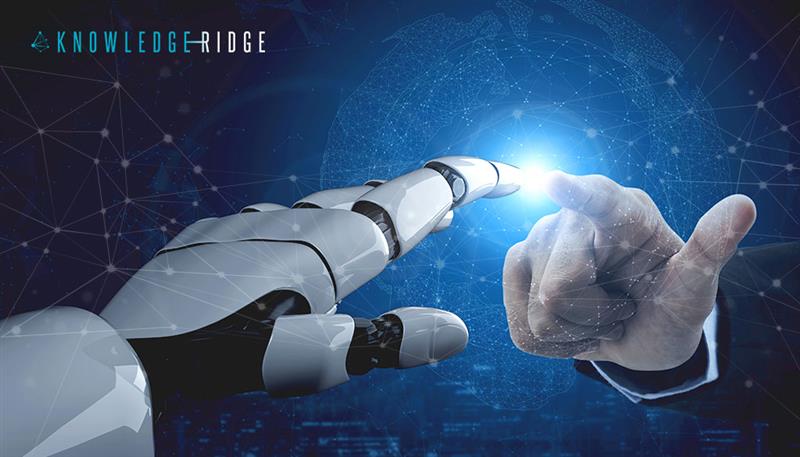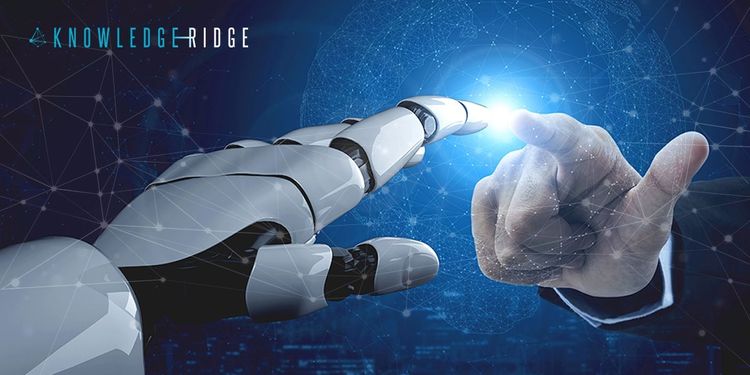According to Goldman Sachs Research, innovations in generative artificial intelligence have the potential to cause profound shifts in the economy worldwide. Businesses and society are expected to adopt tools that leverage natural language processing advances, resulting in a 7% increase in global GDP (equivalent to nearly $7 trillion) and a 1.5 percentage point increase in productivity growth over 10 years.

As AI algorithms continue to advance, they offer the promise of data-driven decision-making, free from human biases. AI can process vast amounts of data rapidly and generate accurate predictions. However, human insights possess unique qualities that AI struggles to replicate. Our ability to understand context, emotions, and subjective factors allows us to make decisions that align with societal values and navigate complex situations.
While AI provides valuable recommendations, human judgment remains essential in considering broader implications and exercising discretion. This has prompted a debate on the reliability of generative AI versus human insights. Striking a balance between the advanced capabilities of AI and the unique perspectives of humans is crucial for robust and responsible decision-making in a world that increasingly embraces AI technologies.
This blog aims to shed light on the advantages of human insights in decision-making processes, especially considering the growing reliance on generative AI. By exploring the nuances of this reliability dilemma, we aim to highlight the importance of retaining a human perspective alongside AI systems, as well as the potential pitfalls of overreliance on AI-generated insights.
Understanding Generative AI
Generative AI focuses on creating new content by recognizing and mimicking patterns in data, enabling the generation of outputs that resemble human-created content. It offers significant advantages by unlocking new possibilities, aiding researchers in exploring hypothetical scenarios and conducting "what-if" analyses.
However, generative AI has limitations, such as potential biases and challenges in ensuring consistent accuracy. Additionally, its interpretability can be difficult, making it harder to trust and validate the results. Despite these challenges, generative AI remains a powerful tool for innovation and exploration.
The Power of Human Insights
Human insights bring invaluable strengths to decision-making, offering diverse perspectives shaped by cultural backgrounds, personal values, and social interactions. Unlike AI, humans possess intuition, creativity, and critical thinking, allowing for holistic decisions by connecting seemingly unrelated information.
Experience and expertise enable human experts to recognize patterns, anticipate trends, and make informed judgments even with incomplete data—skills rooted in deep domain knowledge and contextual understanding that AI struggles to replicate. Additionally, human insights include empathy and emotional intelligence, which are essential for considering the impact of decisions on individuals and communities and fostering inclusive and ethical outcomes.
In fields like medicine, experienced physicians combine medical knowledge with patient-specific factors to create personalized treatment plans. Similarly, in customer service, representatives use empathy to resolve complex issues with tailored solutions. These examples highlight how human insights enrich decision-making with context, emotion, and a human-centric approach.
Comparative Analysis of AI vs. Human Insights
Generative AI offers unmatched precision and scalability, swiftly analyzing vast data sets to uncover patterns and generate predictive models, making it ideal for tasks like financial forecasting and large-scale market analysis. However, AI’s reliance on data can limit its effectiveness in nuanced situations where context and subtle interpretation are key.
Human insights bring deep contextual understanding and the ability to navigate complex ethical and strategic decisions. Experts excel in areas requiring emotional intelligence, cultural understanding, and creative problem-solving—skills that AI cannot replicate.
Rather than viewing AI and human insights as competing, the most effective approach is to integrate both. AI handles data analysis, while human experts provide interpretation, ensuring decisions are both data-driven and contextually sound. This collaboration maximizes the strengths of both AI and human judgment, leading to more informed and balanced decision-making.
Unveiling the Reliability Dilemma
Generative AI systems offer powerful capabilities but come with significant limitations. While they can produce content resembling real data, their accuracy and fairness depend on the quality of training data and algorithmic transparency. The potential for AI to perpetuate biases is a key concern, as flawed algorithms can reinforce societal inequities or generate unfair predictions. Therefore, ongoing evaluation and monitoring are essential to detect and mitigate these biases.
AI's opaque nature also raises trust issues, making transparency and accountability critical. Although AI excels at data processing and objective recommendations, it struggles with complex contexts, ambiguity, and subjective factors. Human judgment is vital for assessing broader implications, questioning assumptions, and incorporating ethical considerations.
Overreliance on AI without human insight can lead to missed opportunities and unforeseen consequences. For instance, in customer service, solely using AI chatbots may result in unsatisfied customers due to the AI’s inability to handle complex issues. Combining human intelligence with AI ensures more personalized solutions, better outcomes, and higher customer satisfaction. Balancing AI's strengths with human judgment fosters a comprehensive, responsible decision-making approach.
How Can Knowledge Ridge Help in the Reliability Dilemma?
In the face of the evolving technological landscape and the increasing reliance on generative AI, at Knowledge Ridge, we bridge the power of AI-generated insights and the unique strengths of human perspectives. By emphasizing human insights as the core value proposition, we ensure that our clients benefit from the unique expertise and critical thinking of our experts alongside AI-generated research, resulting in comprehensive and reliable insights.
We recognize that while generative AI models can provide valuable recommendations, human judgment remains indispensable in evaluating, validating, and interpreting the generated insights. By incorporating human perspectives alongside AI-generated outputs, we help decision-makers strike a balance between data-driven analysis and the human element. This holistic approach to decision-making fosters a more comprehensive understanding of complex situations and enables the consideration of broader implications, ethics, and social impact.
Furthermore, we facilitate dialogue between experts, thought leaders, and decision-makers. This exchange of ideas helps refine and validate AI-generated insights, uncover potential biases or limitations, and promote critical thinking. Through this collaborative approach, Knowledge Ridge enhances the reliability and robustness of decision-making processes.
By integrating human perspectives with generative AI, Knowledge Ridge empowers decision-makers to make informed choices that encompass both the power of technology and the depth of human understanding.
Get in touch with us today to discover how you can confidently navigate the reliability dilemma, leveraging AI's advantages while upholding the critical role of human insights.
Frequently Asked Questions
What are the ethical issues with generative AI?
The potential for deception, the creation of deep fakes, privacy invasion, bias amplification, and a lack of accountability in content creation are some of the ethical problems with generative AI.
What are the potential risks of generative AI in decision-making?
Generative AI in decision-making carries risks, including algorithmic bias, lack of transparency, over-reliance on automation, and unintended consequences. Addressing these risks requires regulation, transparency, and prioritizing ethics and accountability.
What are the strengths of human insights over generative AI?
Human insights possess several strengths over generative AI. Humans can apply contextual understanding, emotional intelligence, and ethical judgment to complex situations. They can incorporate diverse perspectives, exercise creativity, and adapt to new or ambiguous scenarios. Human insights also involve common sense reasoning and moral considerations, which are difficult for AI systems to emulate.

